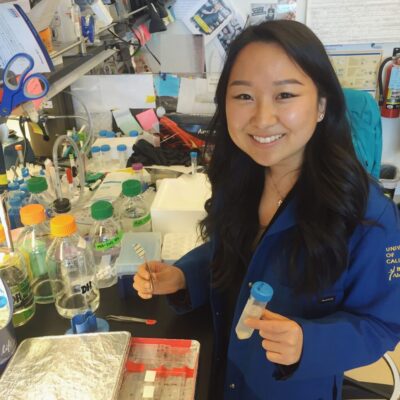Shannon Wu L&S Sciences
Dyskeratosis Congenita shelterin mutations in hESCs
Telomere maintenance and protection is performed by the six-protein complex called shelterin. Shelterin defects may lead to telomeropathies like Dyskeratosis Congenita (DC), a rare but severe disease with poor clinical outcomes. Recently, whole exome sequencing studies of DC patients have identified mutations in the gene locus of the shelterin component, TIN2. By establishing a disease model for DC using CRISPR/Cas9-gene edited isogenic human embryonic stem cell (hESC) lines, I aim to investigate how TIN2-DC mutations give rise to disrupted telomere maintenance and DC phenotypes. Specifically, I will elucidate the genetic basis of telomere shortening caused by TIN2-DC mutations, establish the epistatic relationship between the DC allele and telomerase, and determine whether the DC alleles elicit DNA damage response at telomeres. My findings will deepen our understanding of telomere biology maintenance and molecular etiology of telomeropathies like DC, potentially leading to better therapeutic options for this severe disease.
Message To Sponsor
Dear Dr. Thye, Thank you very much for funding my full-time research pursuits this summer. This transformative experience allowed me to immerse myself in research, and as a result I have gained key skills in scientific inquiry, troubleshooting, and analyzing datasets. The progress I have made, thanks to your support, will allow me to complete my honors thesis this upcoming semester. I have gained the confidence to independently pursue research in my future endeavors. Sincerely, Shannon Wu